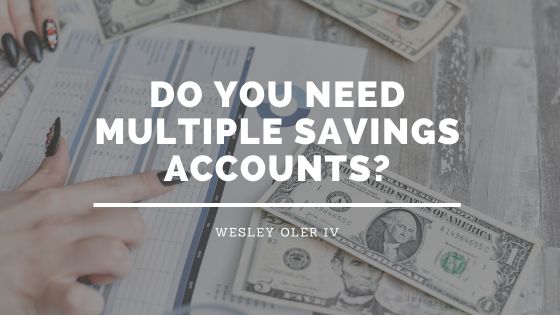Multiple savings accounts can help you organize your finances and achieve your objectives. While some individuals may be content with a single savings account, others may find multiple accounts advantageous. Here is the information to determine if you need various savings accounts.
First and foremost, having multiple savings accounts can be beneficial if you’re working towards specific objectives. For instance, you may wish to save for a house down payment, a new vehicle, or a vacation. Having a separate account for each target allows you to monitor your progress and ensure that you are on track to meet your savings objectives.
Having multiple savings accounts can also help you better manage your finances. By setting aside funds for particular expenses in distinct accounts, you can resist the temptation to use your savings for other purposes. This can assist you in sticking to your budget and avoiding excess.
Multiple savings accounts can also be advantageous if your income or expenses are irregular. For instance, if you are a freelancer or an independent contractor, you may experience periods of increased or decreased earnings. By maintaining discrete accounts for your regular expenses, emergency fund, and savings objectives, you can always set sufficient funds aside for your priorities, regardless of your fluctuating income.
Having multiple savings accounts is not for everyone. If you have difficulties keeping track of finances, there may be better options than having multiple accounts. Managing multiple accounts and keeping track of your savings objectives can be challenging, confusing, and missed opportunities.
Moreover, having multiple savings accounts may incur additional fees depending on your bank. Before establishing numerous accounts, it is essential to consider any maintenance or transfer fees associated with having multiple accounts. If you’re not careful, these fees could deplete your savings and nullify the advantages of having multiple accounts.
Do you, therefore, require multiple savings accounts? The answer depends on your financial objectives, lifestyle, and financial management skills. Multiple accounts may be a good option if you have specific savings objectives and want to stick to your budget. However, a single savings account may be the superior option if you prefer simplicity and wish to avoid additional fees.
If you choose to establish multiple savings accounts, bear the following in mind:
Clearly label your accounts. Ensure that you can readily identify the purpose of each account. This will assist you in maintaining order and avoiding confusion.
Set up automatic transfers from checking to savings to ensure that you consistently contribute to your goals.
Examine your accounts frequently. Ensure you are meeting your savings objectives and alter your contributions as necessary. If you consistently exceed in a particular category, you may need to adjust your budget or savings objectives accordingly.
Consider using an app or utility for budgeting. There are a variety of applications and tools to monitor your savings objectives. Consider utilizing one of these instruments to keep your savings on track.
Multiple savings accounts can help you organize your finances and achieve your objectives. Before deciding whether or not to establish multiple accounts, evaluating your financial situation and goals is essential. By using these strategies and remaining on top of your finances, you can maximize your savings and reach your financial objectives.
